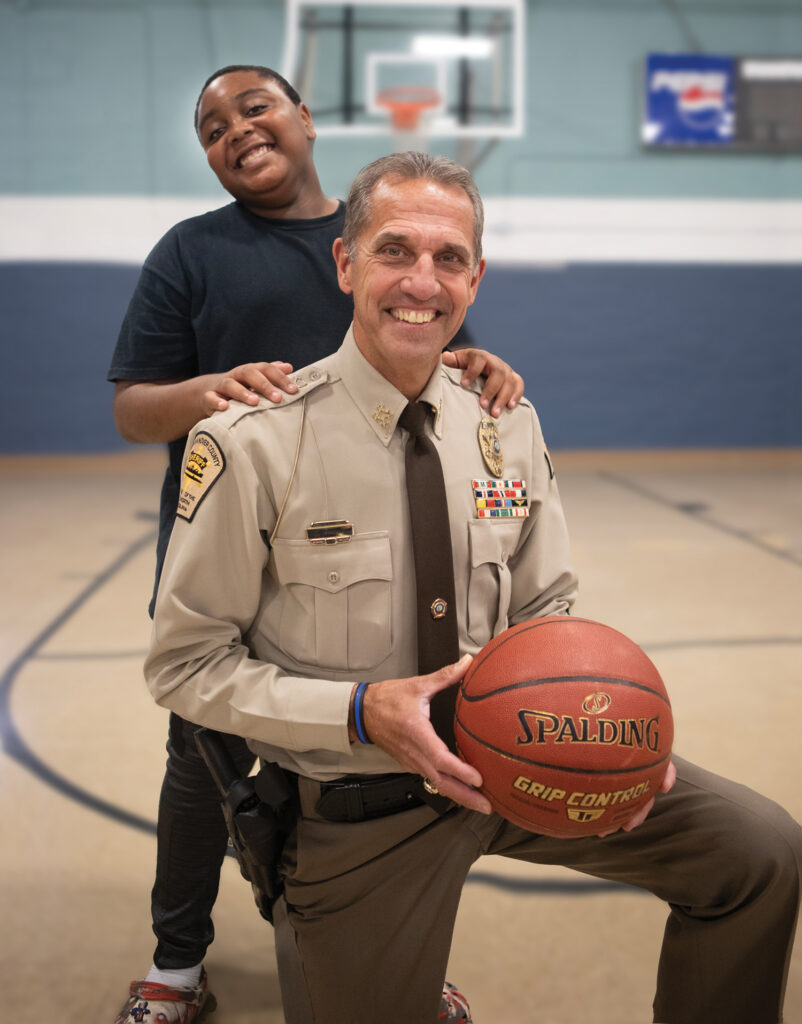Game Changer
Teaching personal, social, and professional skills helps keep county youth from violent outcomes
BY Taylor Hammeke
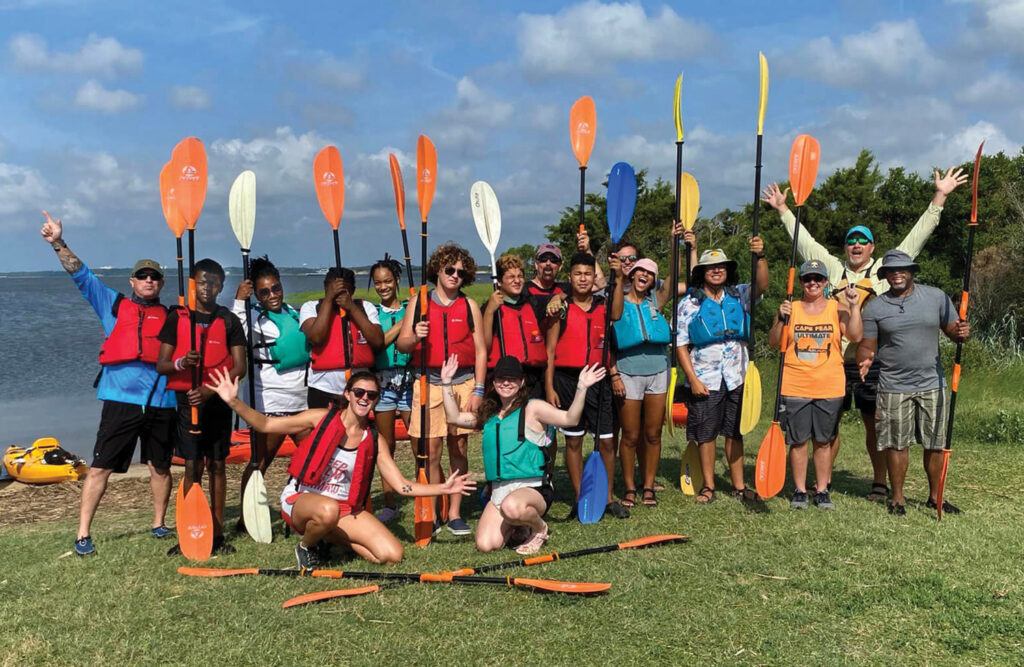
There are a number of programs in the county and region that focus on youth violence intervention but one flying under the radar is the ELEMENTS program within the New Hanover County Sheriff’s Office.
In its 17th year, the program helps young people see a different path than violence through year-long, one-on-one mentorships for children ages 8 to 18.
“[The program] helps young people develop into their true selves and gives them the tools to be all that they want to be,” says program manager Kristy Williams, who has been with ELEMENTS since its founding.
The acronym stands for Enrich, Live, Experience, Motivate, Empower, Nourish, Teach and Solve — all goals of the program.
ELEMENTS began in 2006 to deter youth from joining gangs. Law enforcement officials collected data that showed that children who are exposed to crime, substance abuse, domestic violence or gangs are more at risk of getting involved themselves.
With funding from the Community Building Plan, the program expanded from five to 16 employees in 2022. What started as a small team of noncertified law enforcement personnel focused on gang prevention and intervention has grown into a more diverse staff focusing on youth violence intervention.
“The enhanced funding for the ELEMENTS program, which was unanimously supported by the New Hanover County Board of County Commissioners, reflects the county’s ongoing commitment to enhancing safety and well-being within our community by providing young people a path that shows effective alternatives to violence,” says New Hanover County Manager Chris Coudriet.

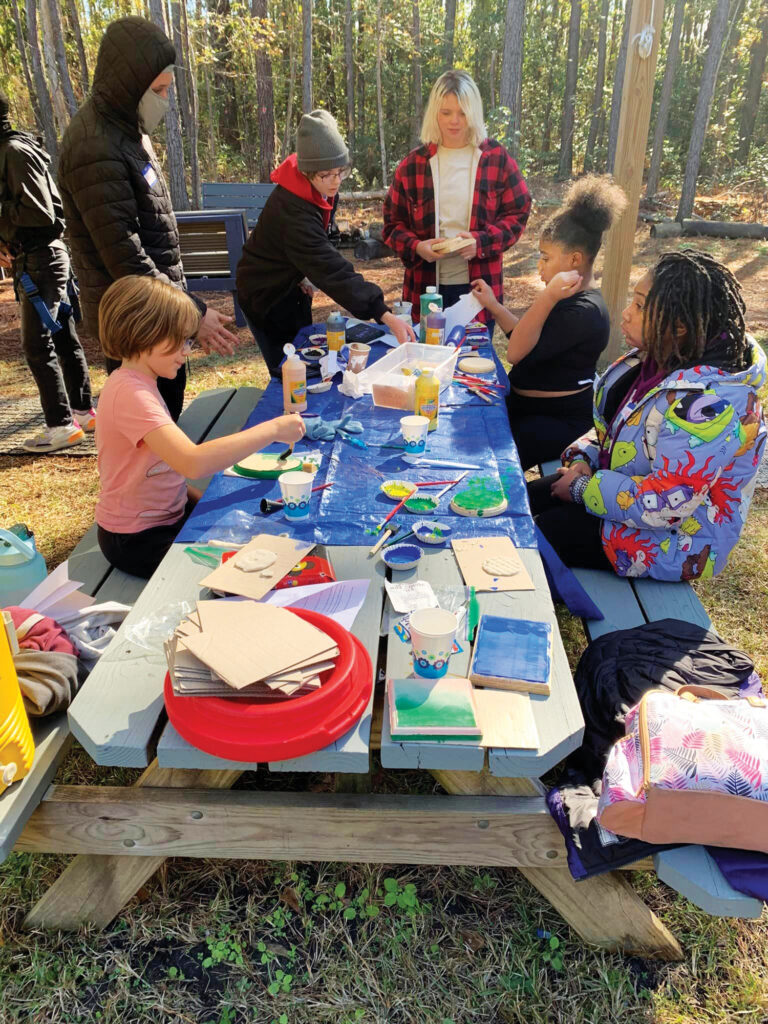
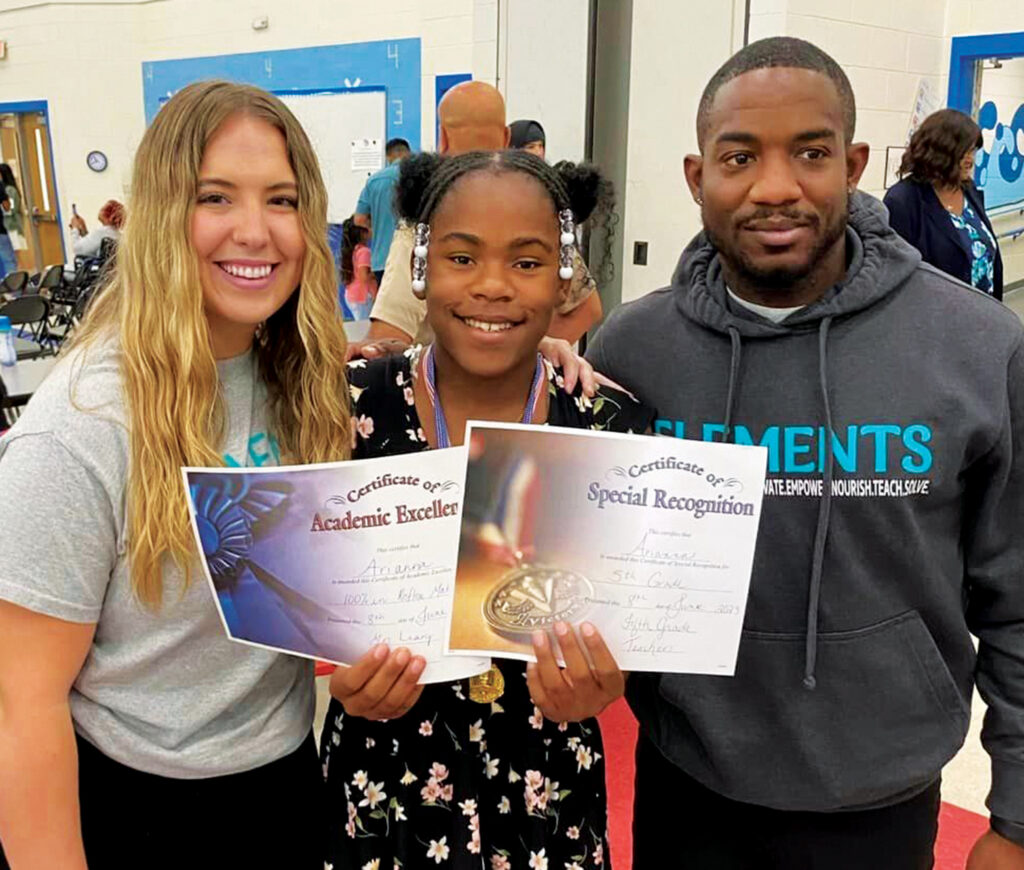
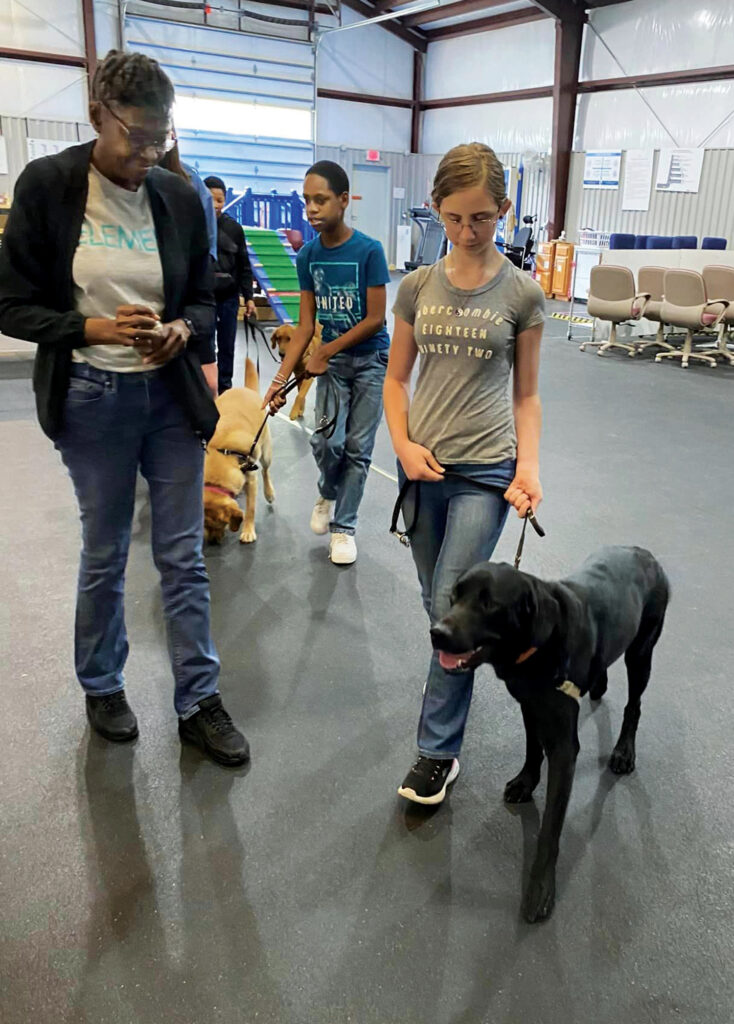

The growth of staff and clients demonstrates the true need for the program.
“It is a passion of the sheriff’s office to serve the youth and families of our community. I have seen firsthand the impact the ELEMENTS program has had in our community, and I am proud to have the County Commissioners’ support during our recent expansion. The goal is to ensure more of our community has the opportunity to experience the great services the program has to offer,” says New Hanover County Sheriff Ed McMahon.
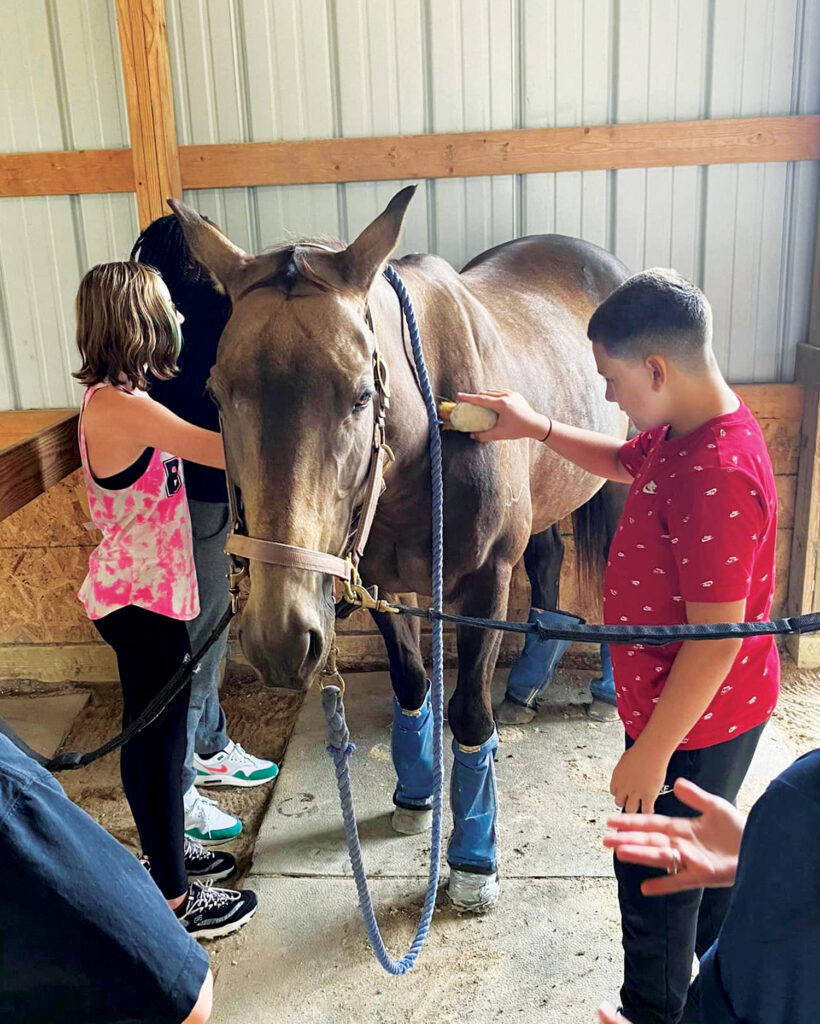
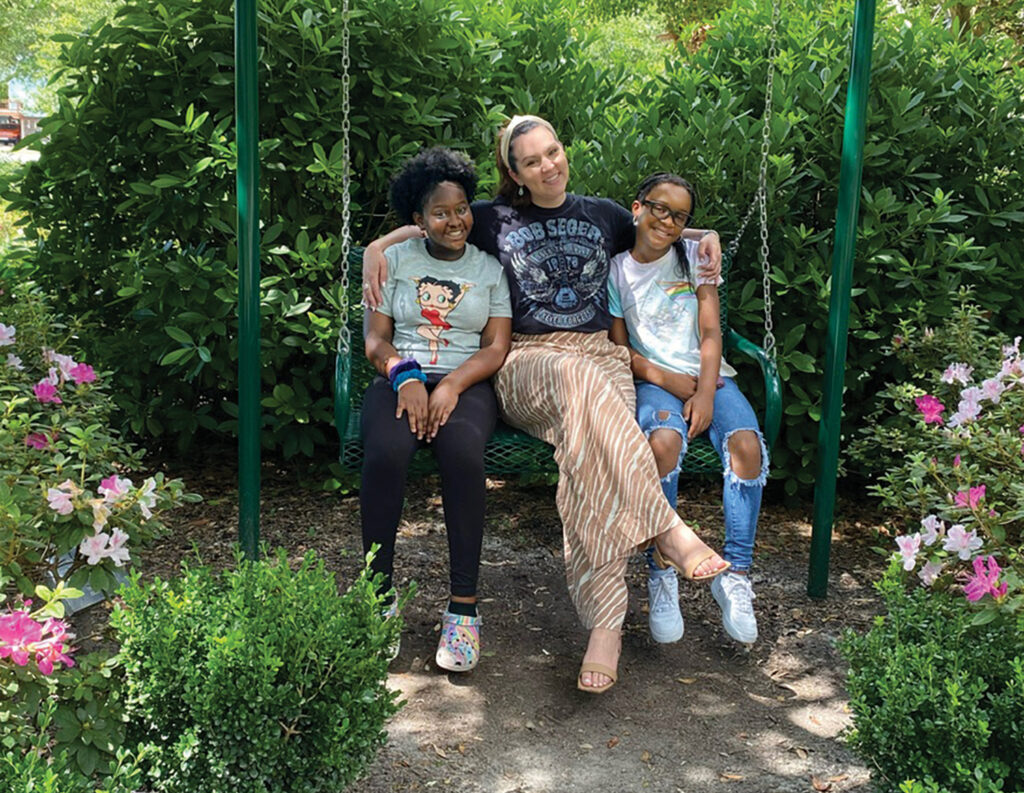
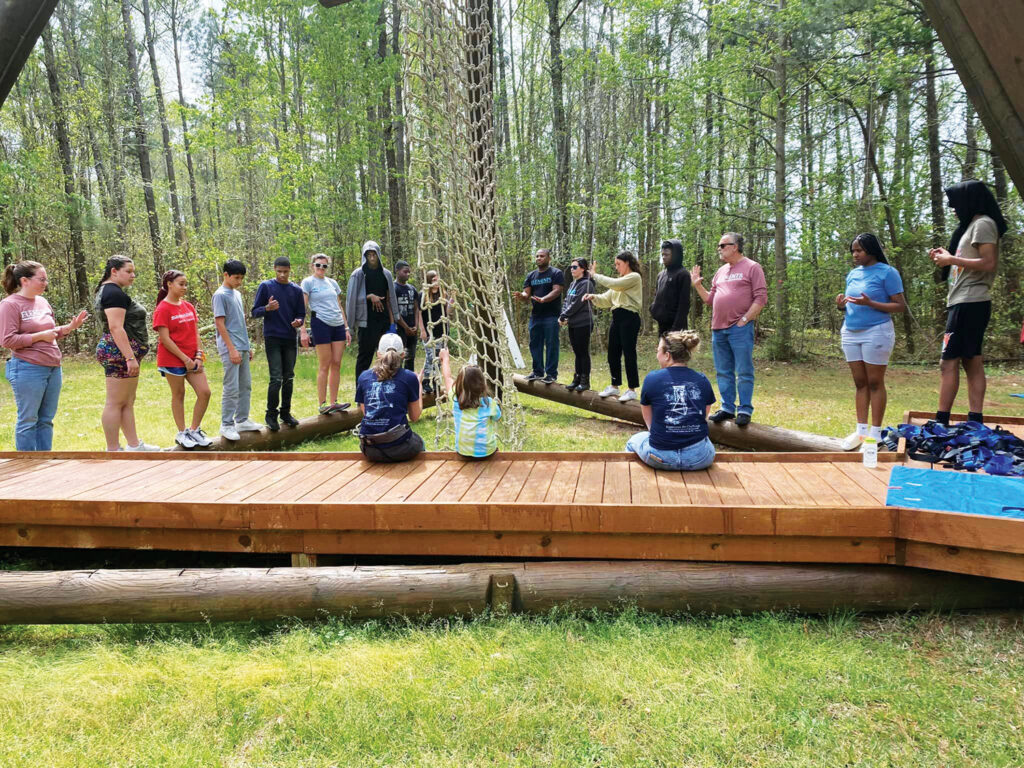
ELEMENTS is a free service. Transportation is provided, and there is no billing of insurance, which enables the program to be as inclusive as possible. Each participant meets several times a month with their case manager after school for a year. The case manager checks in on class attendance, grades, and disciplinary reports, and will also sit in on court dates, in class, and conduct home visits.
“To get to know the client, it’s important to get into their environment,” Williams says.
Case managers set four main goals with each client: academic, peer and social, family, and individual. Every 90 days, managers review the goals and modify them if needed.
All youth are referred to the program from schools, law enforcement, mental health, family members or the Department of Social Services.
After a year of one-on-one meetings with their case manager, they transition into a six-month group program, although there are exceptions. Following the group program, clients are offered continued services to provide support and consistency.
“I have lost kids to prison, to gun violence. To say it has been easy is nowhere near the truth,” Williams says. “But every single child who shows progress has made every single minute worth it. I saw generational gang involvement and substance abuse dropouts when I first started. Now, I see generational ELEMENTS youth, where parents want for their children what they had from ELEMENTS.”
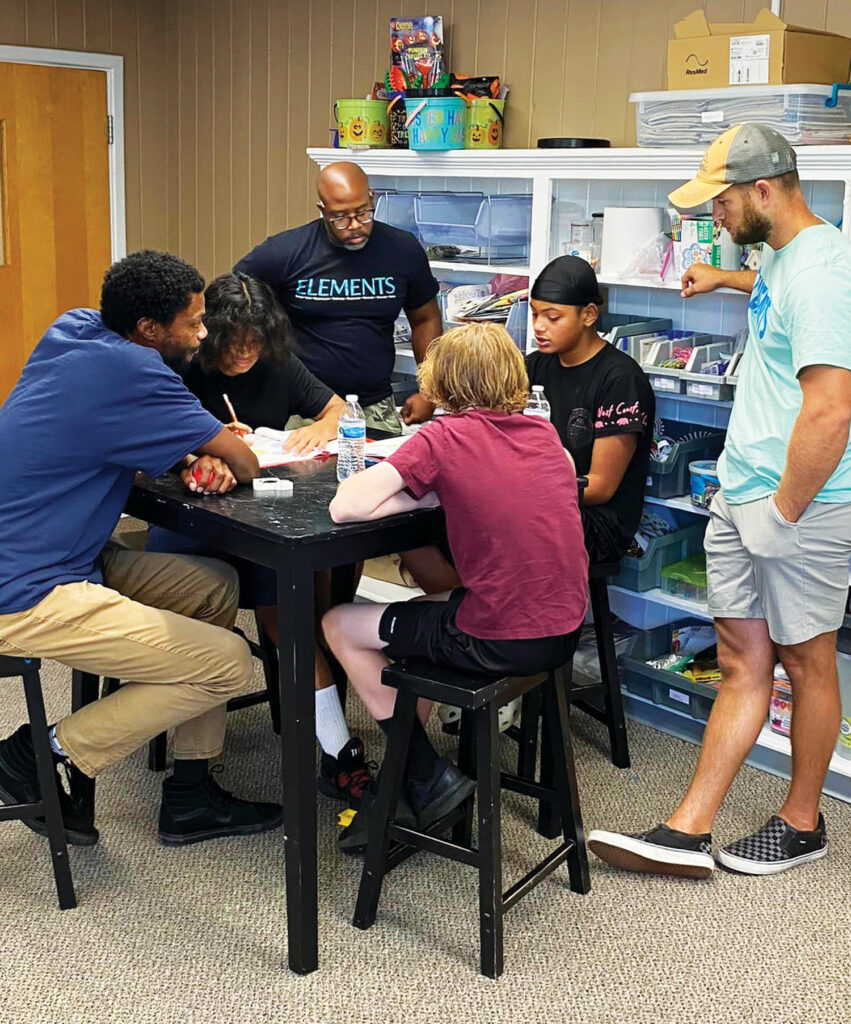

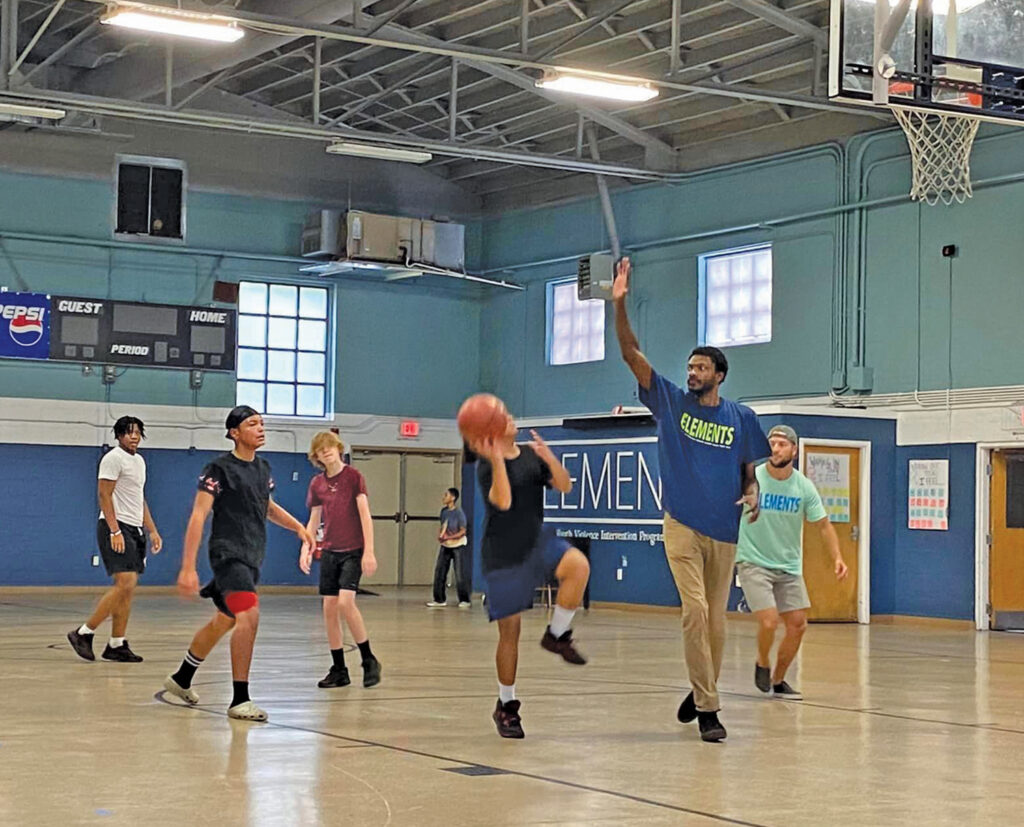
One youth who was part of the ELEMENTS program in high school is Olaf, now an adult.
“It taught me that you don’t have to become a product of your environment,” he says. “No matter how small your beginnings, your dreams are also valid and can be accomplished. I would summarize it with the following quote, ‘Rise and rise again until lambs become lions.’”
The program also incorporates experiential learning through peer involvement in community partnerships. This provides exposure to new experiences, and the opportunity to build peer support as well as work on goals in a group setting.
Youth take part in kayaking, camping, and high ropes courses through Coastal Horizons Outdoor Adventure. While going on adventures, they gain leadership skills and develop trust and teamwork. Youth also assist the Coastal Therapeutic Riding Program, which provides riding lessons for individuals with special needs.
ELEMENTS also partners with Canines for Service, helping train and walk dogs, as well as the Animal Service program through the sheriff’s office.
The ELEMENTS building on the edge of downtown Wilmington has multiple resources to enable on-site learning. The facility includes a large garden that provides an education into how fruits and vegetables are grown and the opportunity to give back to the local community. Youth donated 33 pounds of food to the Good Shepherd Center after the last harvest.
The building also has a life skills room, a space where clients and young parents are taught how to apply for jobs and to college as well as how to cook, key skills that will stay with them well beyond their time in the program. The room includes hot plates, an air fryer, a washer and dryer, and a computer.
In addition to providing individual and peer support for youth, ELEMENTS also has family support case workers for parents and guardians.
“We need to get each guardian where they need to be. We help secure food, housing, jobs, transportation, and provide conversation knowing they have someone for support,” says Williams.
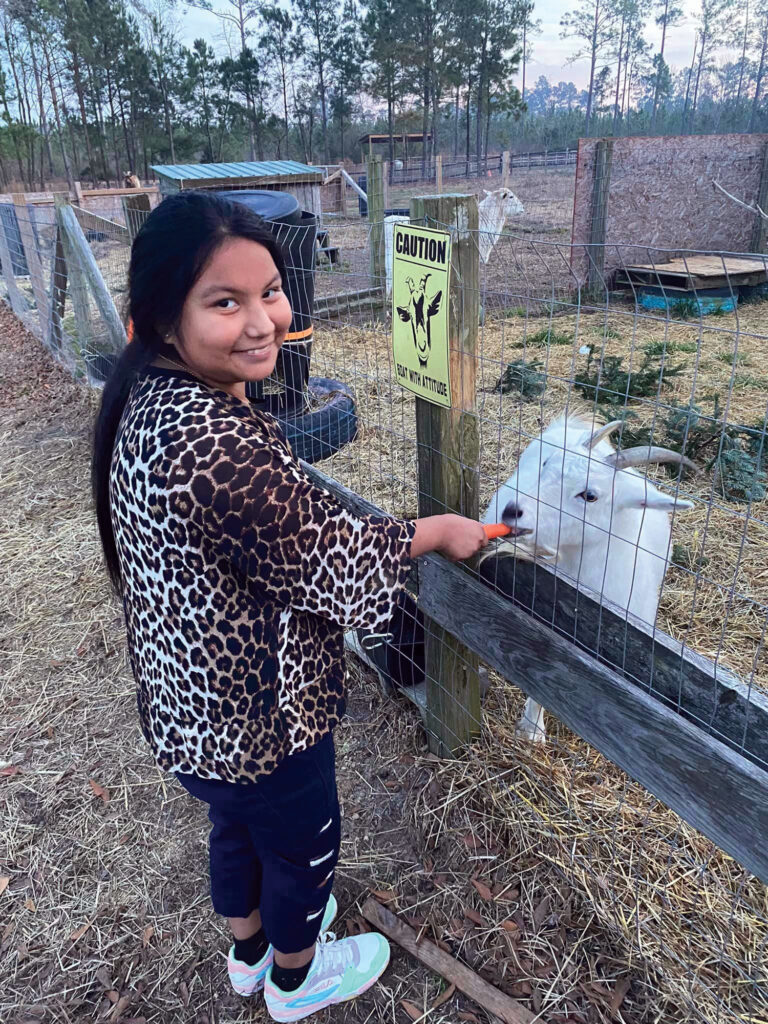
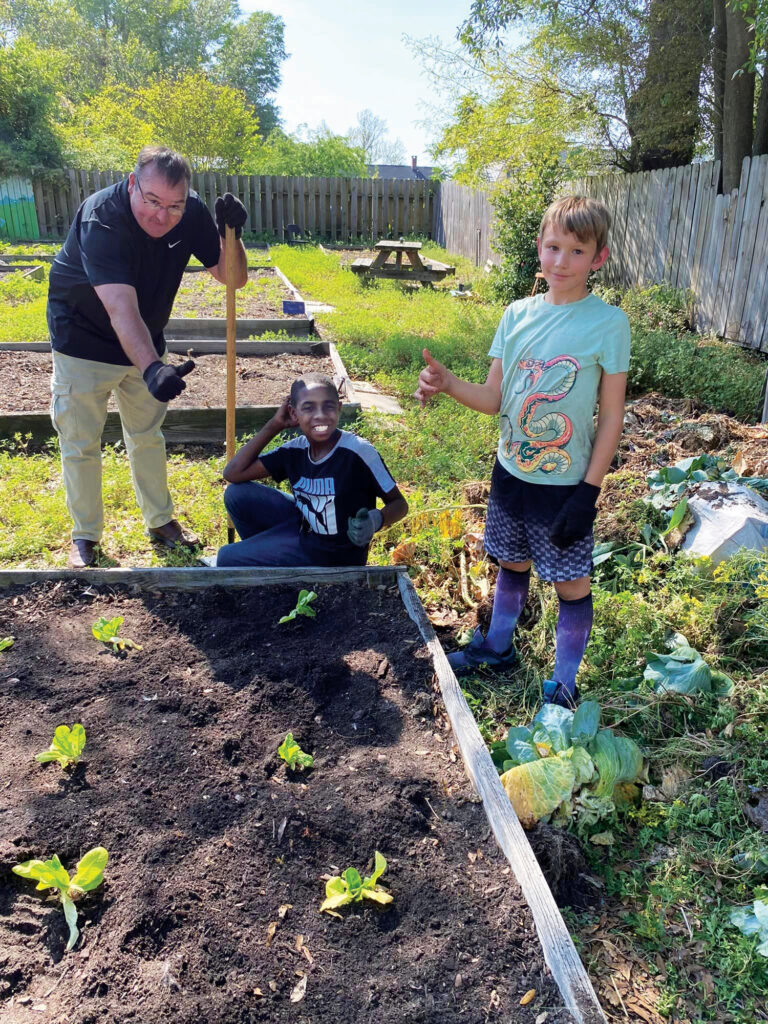

Working with guardians provides connections in the community including the Harrelson Center, Nourish NC, and Catholic Charities. ELEMENTS also hosts family event days, where guardians take part in the ropes course, team-building activities, and a cookout.
Kayla Trevethan has been an ELEMENTS case manager for over a year. She is moving from a case manager for elementary-age clients to a family support case worker.
“I used to teach elementary school and was seeing needs in the kids during and post-Covid and wasn’t able to fully address those needs as a teacher. I was referring kids to a social worker, and wanted to have that impact on the kids,” she says. “Every day is something different. [My favorite part is] getting to see the relationship with the client change and building a trusting relationship with them and their families.”
Trevethan says the hardest part is trauma following trauma. She was working with a youth experiencing a difficult situation, and she was able to help him frame his future and work through the struggles. After a few months of healing, behavior reports in school and home started turning around.
“Seeing the healing in that was really great,” says Trevethan.

